● Knowledge of infertility & surrogacy issues are becoming mainstream.
○ 60% know someone who has experienced infertility
○ 30% know someone who has contemplated surrogacy to start a family
○ 11% know a family that has pursued a surrogacy journey.
● Surrogacy affordability is mainly limited to the upper middle class. Those able to afford surrogacy have an average annual household income of $176,000, creating a barrier to fair and equal access to treatment.
● 58% of employees support legislation that requires companies to provide health insurance coverage for the diagnosis and treatment of infertility and fertility services, including surrogacy.
● Fertility benefits are increasingly common and expected. Approximately 1 in 3 surveyed said their companies provide insurance benefits that cover infertility treatment. On average, those benefits provide $11,000 in coverage. 91% of intended parents are willing to pay a higher premium for additional benefits.
● 65% of employees find it important for their employers to offer inclusive infertility benefits as part of job satisfaction and company loyalty.
● 60% of intended parents rated their company policies as “poor” or “very poor” in helping
employees seeking support to a become parent via IVF, surrogacy and adoption; and they
strongly agree (78%) that more support should be offered.
● Job Retention: 61% of overall employees would be inclined to stay with a company that offered comprehensive infertility benefits. This inclination increases to 87% for employees who plan to be intended parents.
● Switching Jobs: 79% of employees that plan to be intended parents via surrogacy would
consider switching jobs that offer substantially more comprehensive infertility benefits.
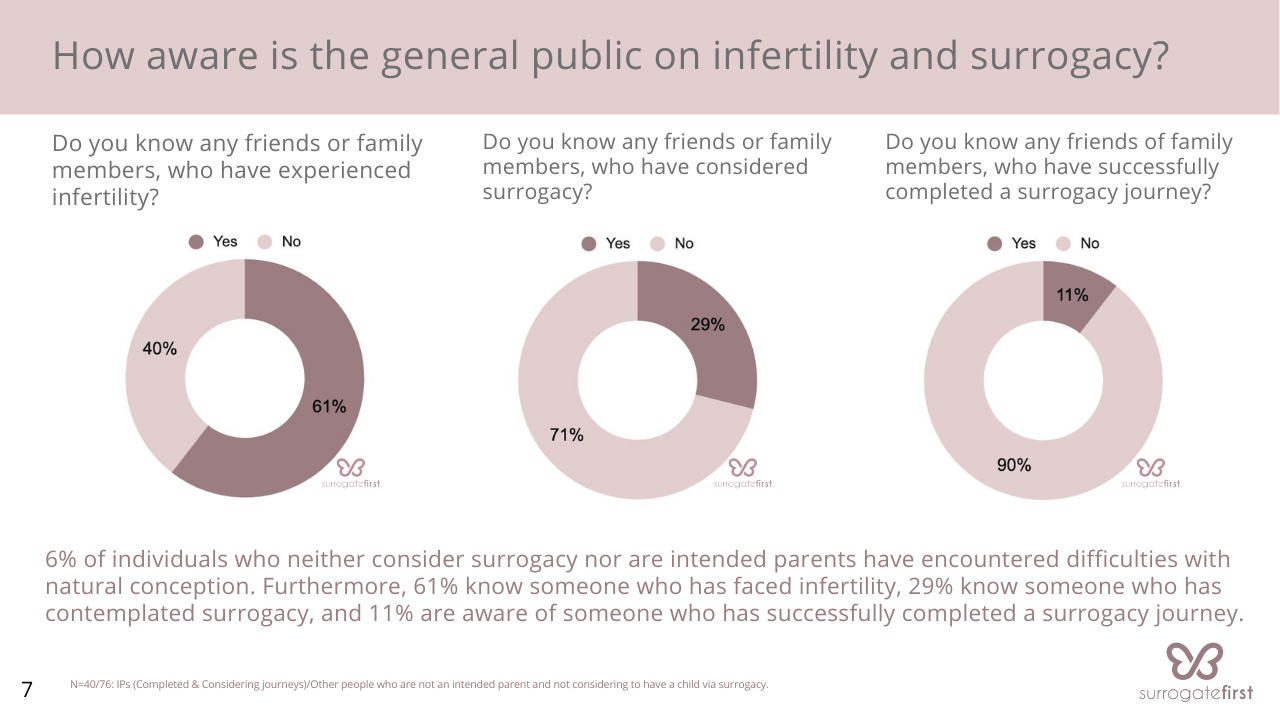
Intended Parents pursuing surrogacy tend to have higher incomes ($176,000) compared to the broader population. Placing them in the upper middle class of American wage earners.
The total cost of surrogacy creates a financial barrier and limits access to the services needed to pursue family building to those who don’t have financial support.

Approximately 30% of people we surveyed, whether they are involved in surrogacy or not, have their IVF, infertility, or surrogacy expenses covered by their employer.
This reflects the recognition of the importance infertility benefits have become to employee satisfaction and expectations.
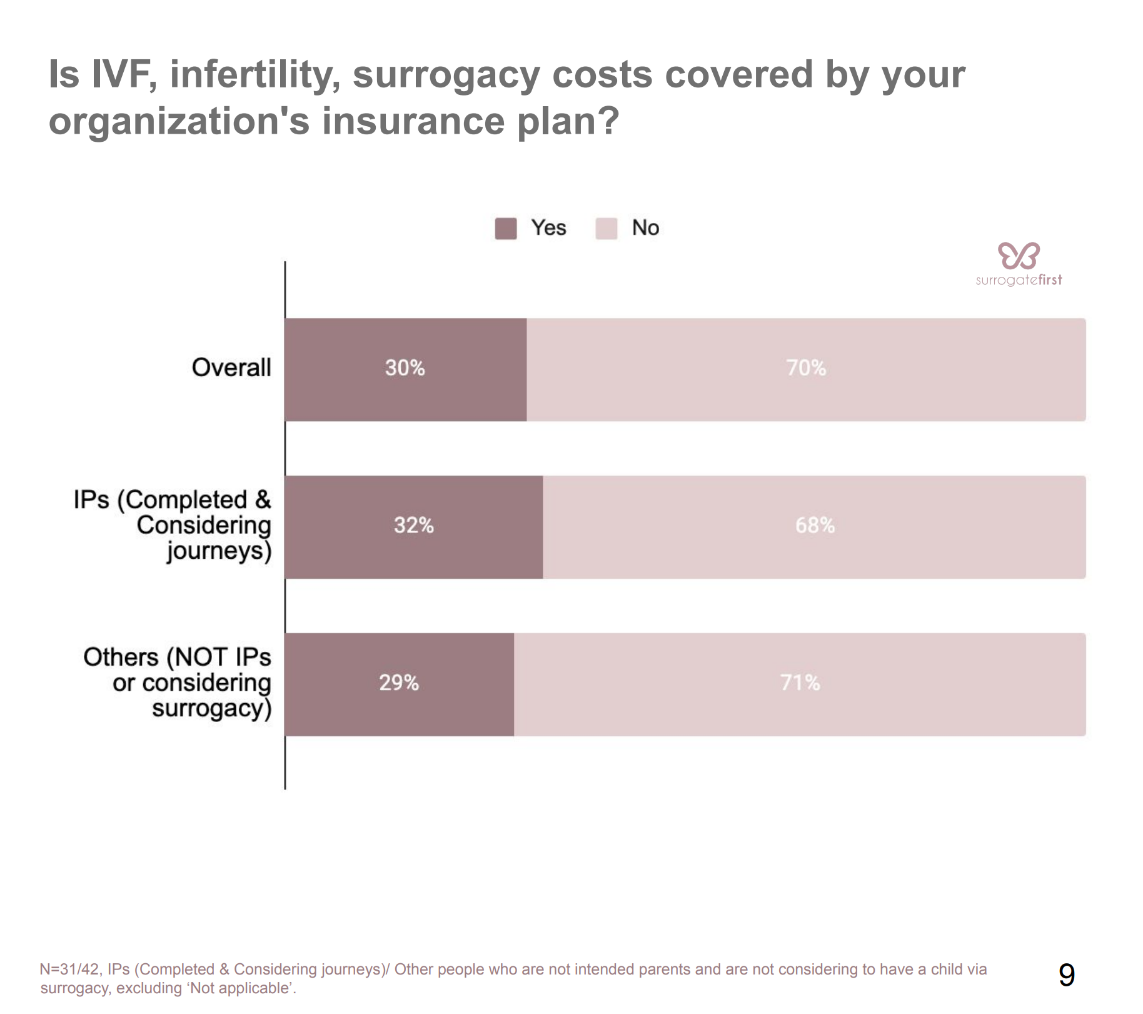
On average, employers are providing $11,000 in health insurance coverage and benefits to their employees for infertility related services.
Intended parents receive greater coverage ($14,500) for IVF, infertility, or surrogacy costs compared to individuals who are not engaged in surrogacy.
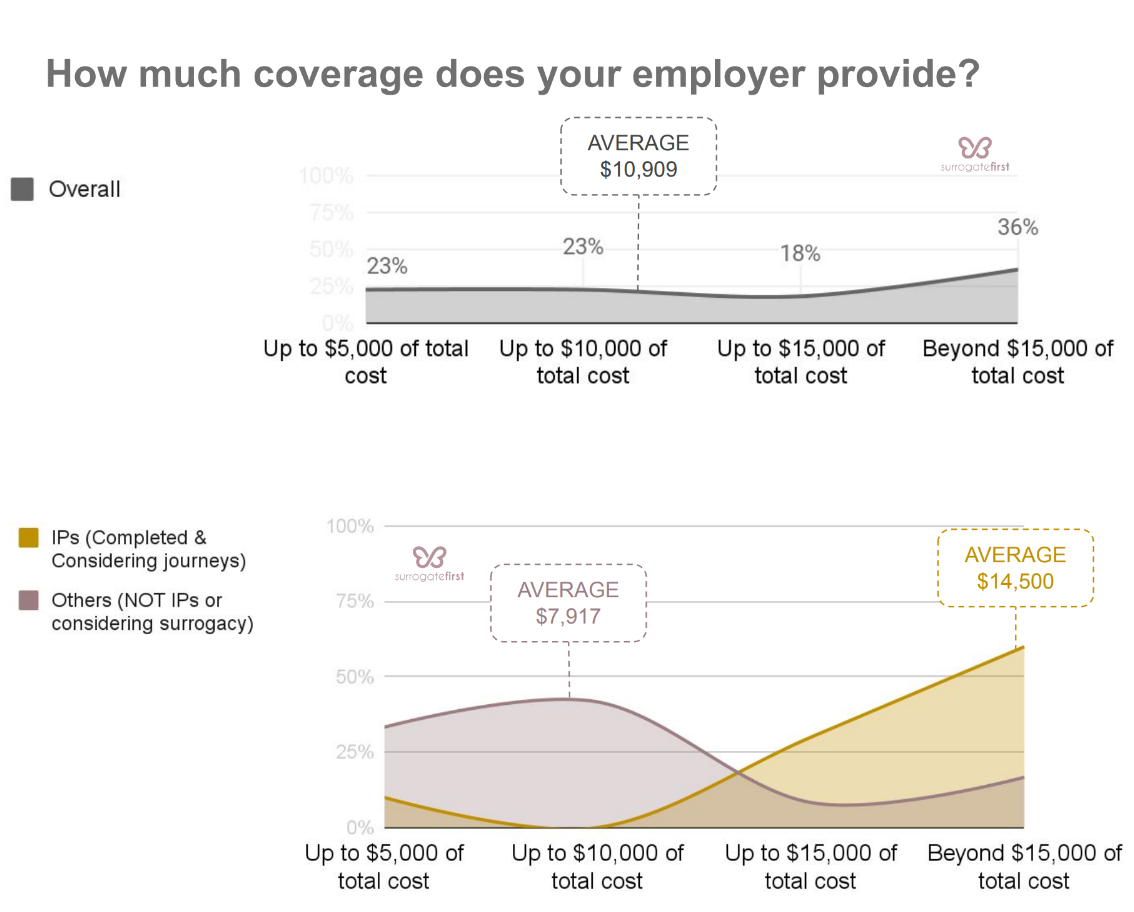
Intended parents would pay a higher premium for a health insurance plan to cover surrogacy, while people who do not intend to have a child through surrogacy would rather not.
Companies should consider offering additional health coverage plans to employees to manage their future family building plans.
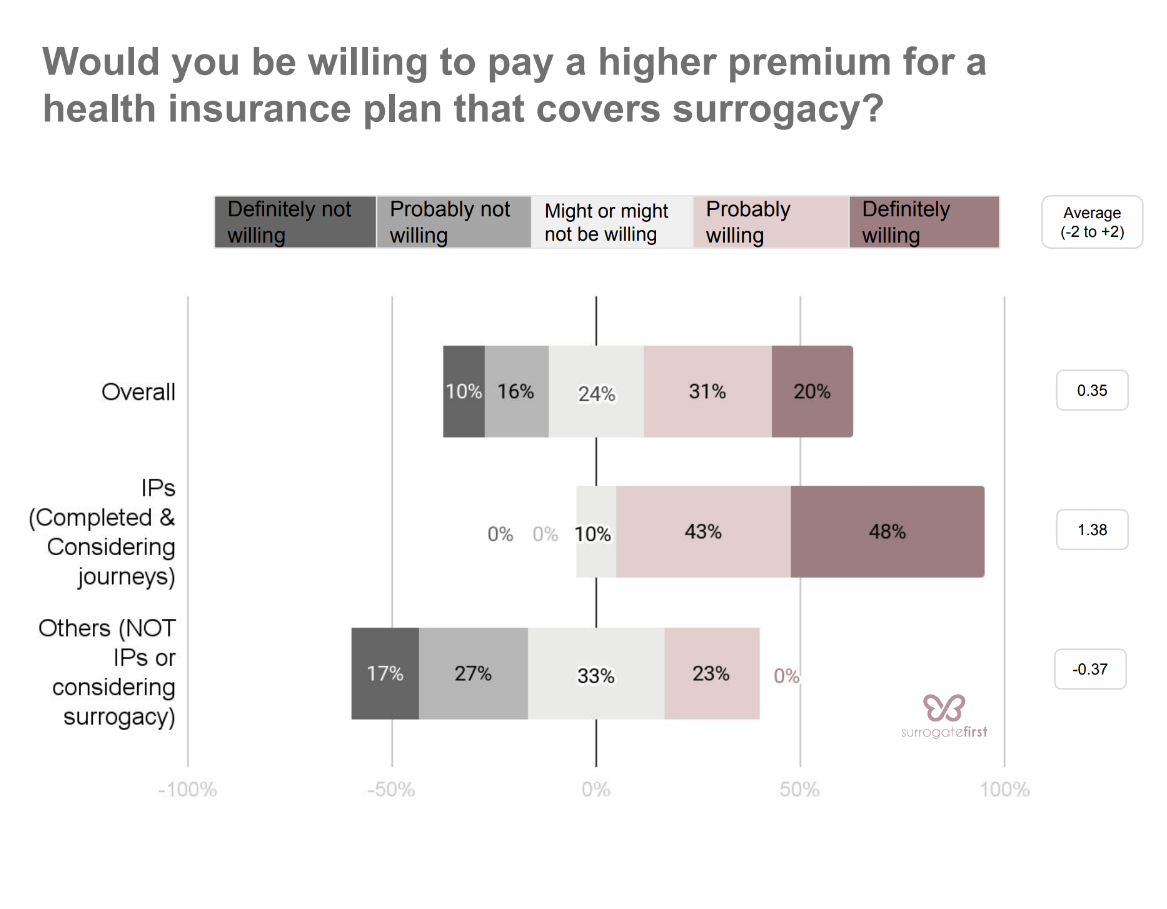
Most respondents we surveyed (60%), support legislation that requires companies to provide health insurance coverage for the diagnosis and treatment of infertility and fertility services.
Particularly, intended parents are 46% more likely to support such legislation compared to the general population.
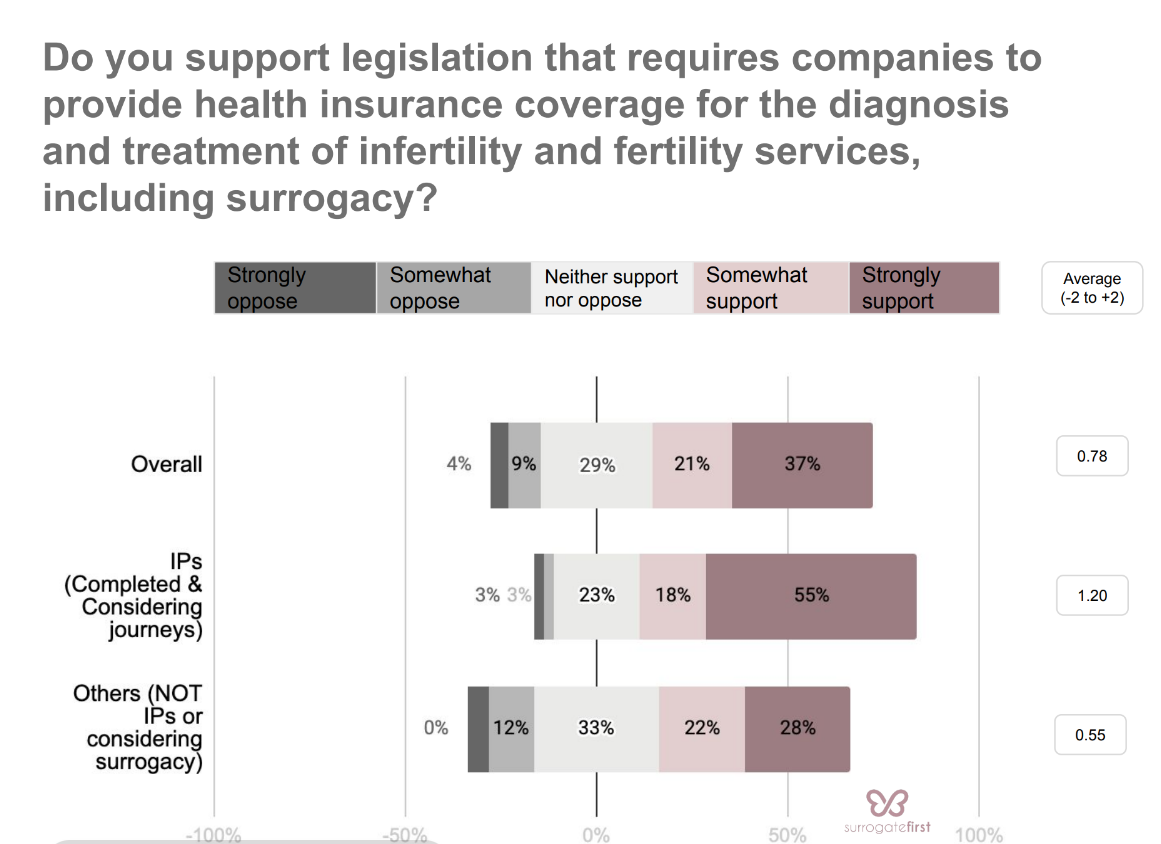
Intended parents believe it is important (41%) for their employers to provide infertility & surrogacy coverage in terms of their job satisfaction and loyalty.
In contrast, for those who do not plan to have a child through surrogacy, this benefit is 267% less important, being rated as “not at all important.”
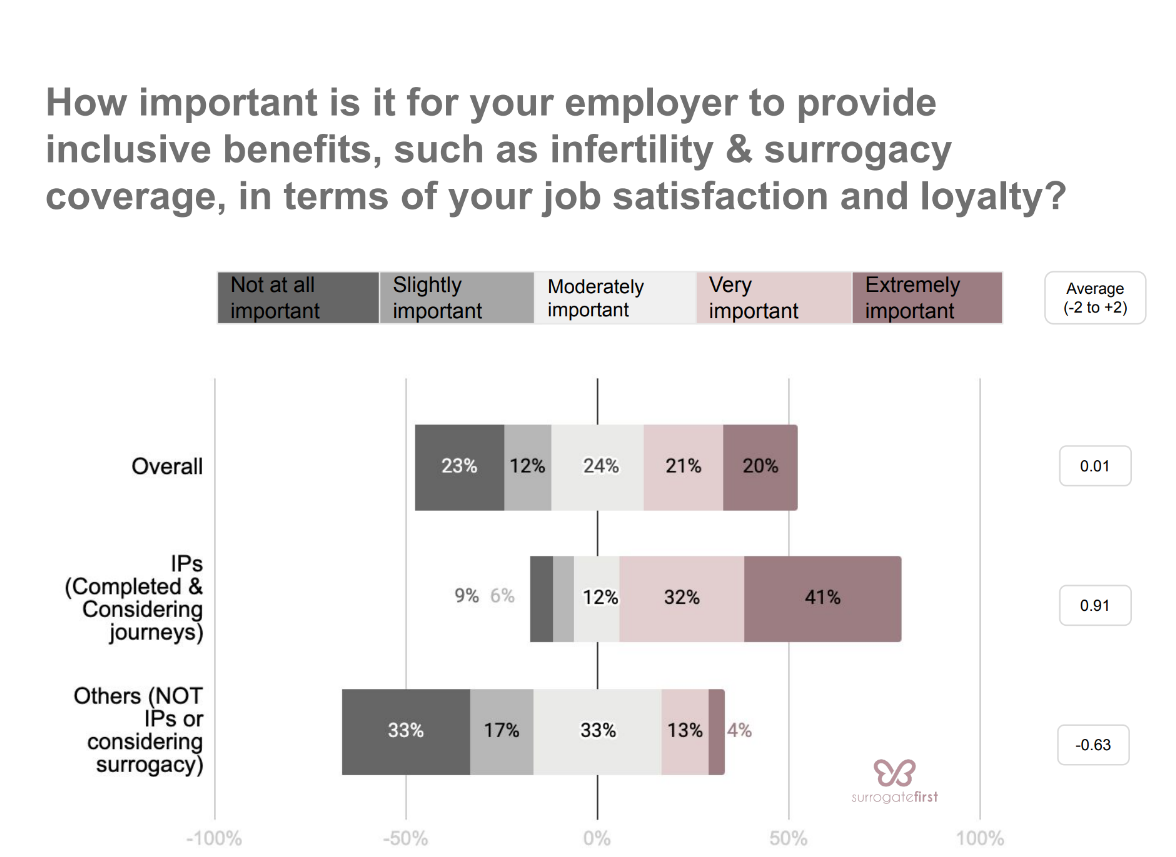
Overall, employees are not satisfied with policies and support for infertility benefits to employees, with 46% saying current support policies and support are “poor” or “very poor.”
Furthermore, intended parents were 82% more likely to rate their employer’s policies as “poor” or “very poor” compared to others.
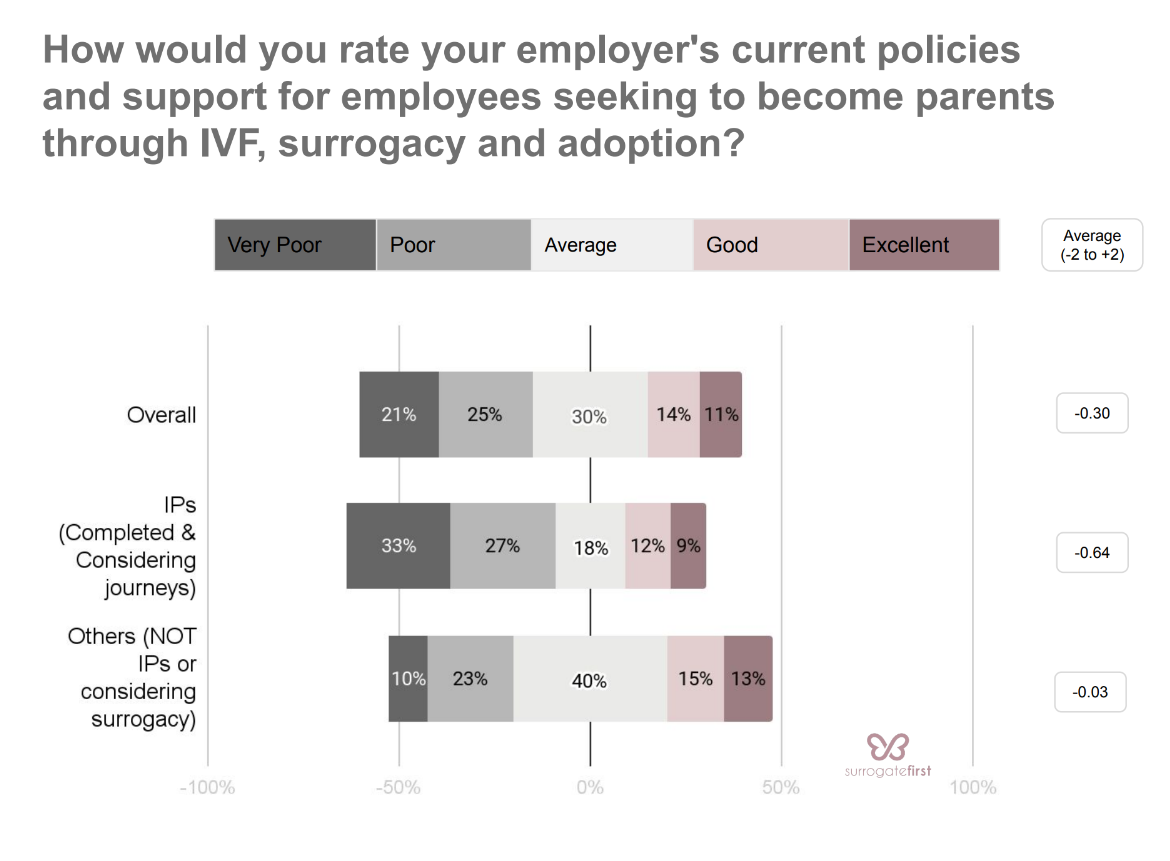
Intended parents also agree that employers should offer additional support or benefits to employees pursuing IVF, surrogacy and adoption, expressing this opinion 70% more frequently than people from the general population.
Note there is broad support (57%), from overall respondents who “agree” or “strongly agree” that more benefits should be offered.
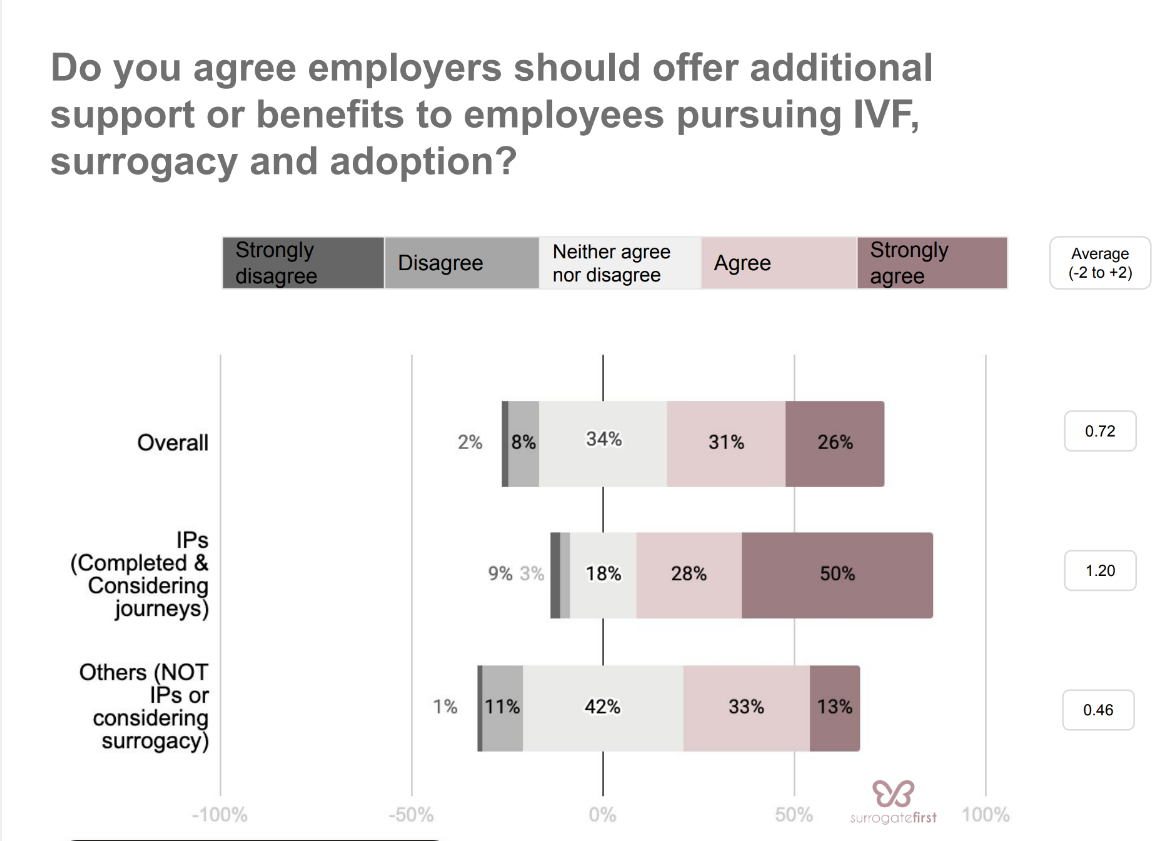
61% of all respondents would be inclined to stay with a company that provided comprehensive infertility benefits.
Intended parents are more likely to stay with a company that provides coverage for IVF, surrogacy, and adoption, while individuals from the general population were 391% more frequently neutral on this matter.
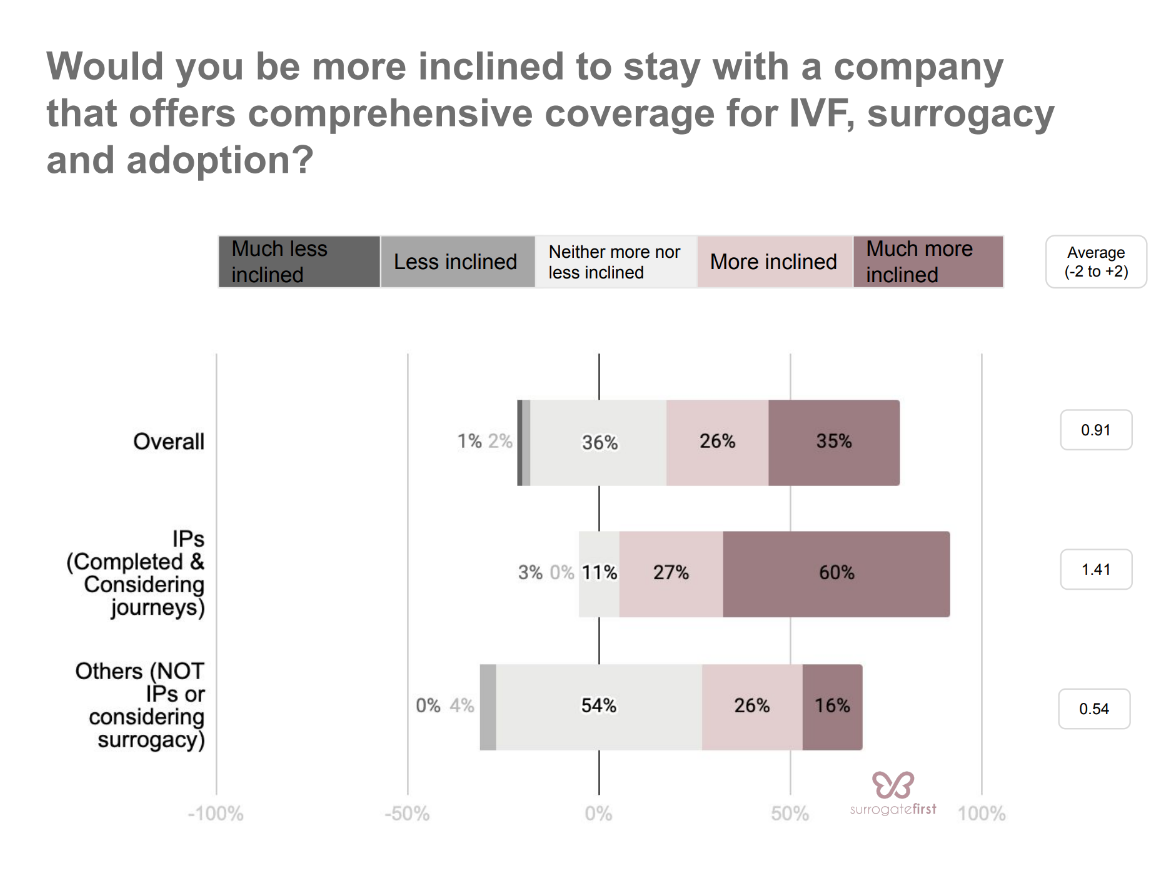
Intended parents would be 79% more inclined to change jobs if a new employer offered significantly more extensive coverage for infertility and surrogacy.
Companies need to be aware and proactive in retaining key talent that are likely to experience infertility and family creation challenges with strong health coverage plan options.
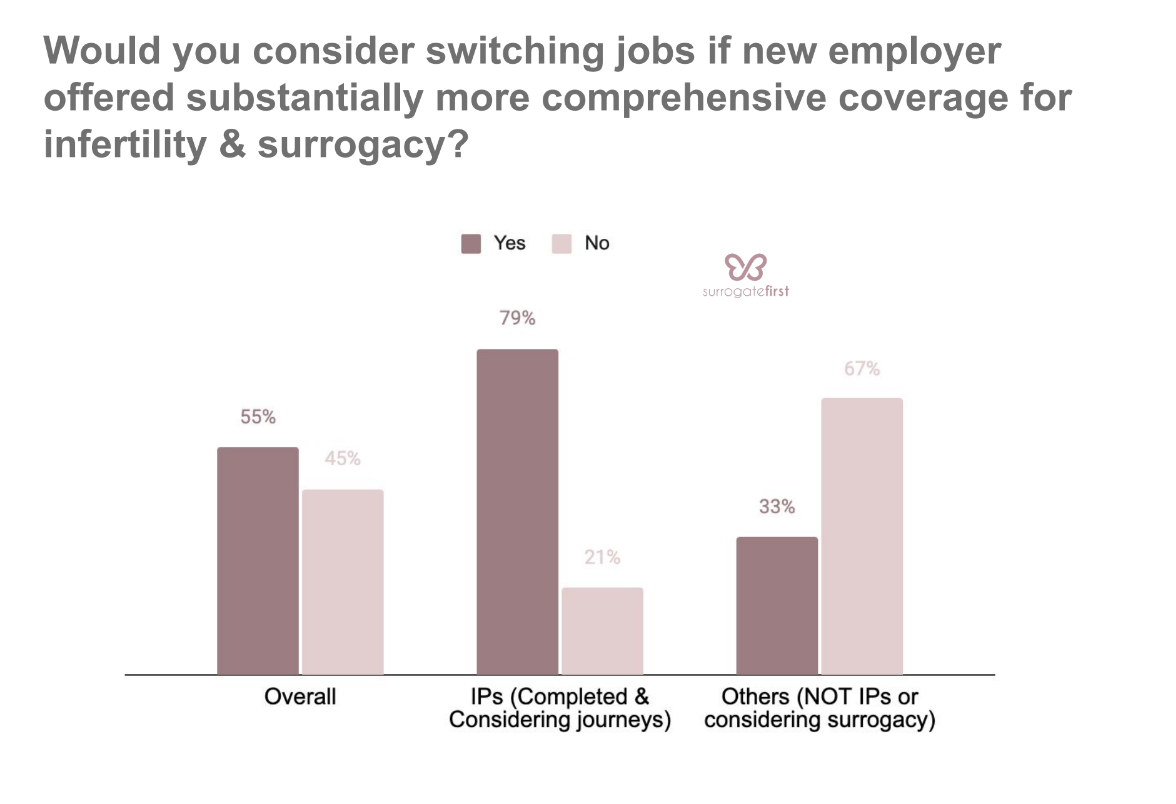
Although compensation and benefits continue to rise sharply, surrogate satisfaction towards their compensation has decreased. Most surrogates, 69%, were “satisfied” or “very satisfied” with their compensation, a decrease from 96% in 2020. If we look deeper, the disparity in compensation satisfaction stems from those answering “Neutral” or “Unsatisfied”, which has substantially increased from 4% to 31%; while at the same time “Very Satisfied” increased from 35% in 2020 to 44% in 2023.
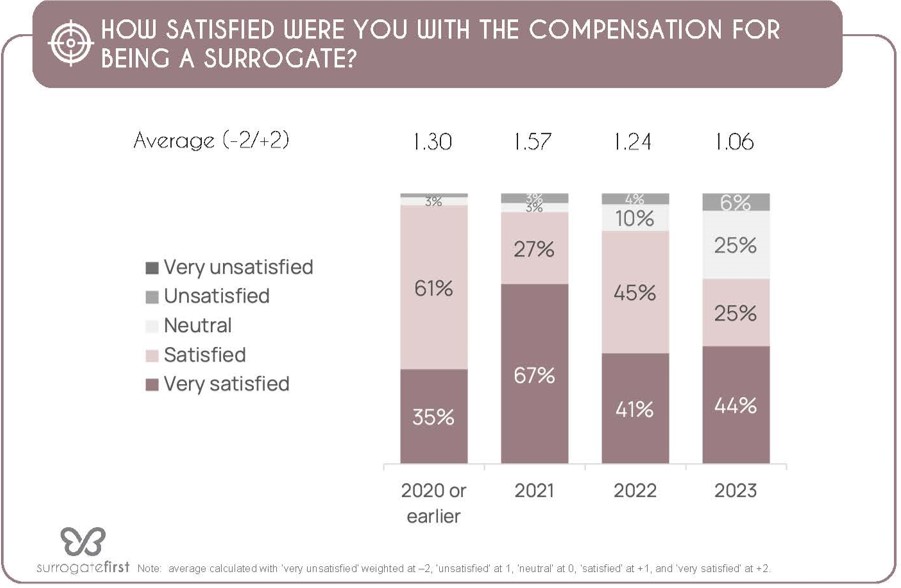
Surrogacy is becoming mainstream (11% know someone that pursued surrogacy.
Providing comprehensive infertility benefits retains employees (61% inclined to remain) & attracts new talent (79% consider switching jobs).
Current employer policies concerning infertility services are under delivering (60% rated Poor or Very Poor).
